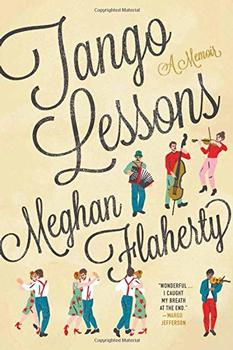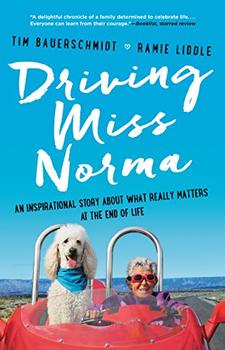Summary | Excerpt | Reading Guide | Reviews | Beyond the book | Read-Alikes | Genres & Themes | Author Bio

A Memoir in Death-Defying Acts
by Tessa FontaineIn 2010, author Tessa Fontaine's mother had a near-fatal hemorrhagic stroke, leaving her with a permanent brain bleed and unable to walk or talk. In spite of continuing health problems, three years later she and her husband decided to fulfill a life-long dream by taking an extended trip to Italy together, accepting the risk of a health crisis while abroad.
Fontaine, who spent years coping with her mother's illness and living through "hospital and rehab facilities and emergency goodbyes and brain surgeries and therapies and grim consultations and leaking blood and brain fluid and crises and recoveries," decided she would follow her mother's example. While her mother was abroad she'd also do something she'd always longed yet feared: join a traveling sideshow for five months. Her memoir, The Electric Woman, is a chronicle of her time with the World of Wonders (see Beyond the Book) as well as her continuing struggle with her mother's illness, impending death, and her guilt over their strained relationship pre-stroke.
Fontaine describes the World of Wonders as the last traditional traveling sideshow. She writes, "Sideshows are where people come to see public displays of their private fears: of deformity, of a disruption in the perceived gender binary, of mutation, of disfigurement, of a crossover with the animal world, of being out of proportion. And that is a sideshow's intention—to frame whoever or whatever is on display as being outside the realm of what's 'normal.'" She starts as a bally girl – the person out front who performs while an announcer (the "talker") attracts a crowd and gets onlookers interested enough to come in for the show. She is taught skills such as snake-handling, fire-eating, escaping from handcuffs and turning a one-dollar bill into a five (by folding it into the shape of the number five), almost all of it through on-the-job training. "This was nothing like performing in school plays, where the bulk of time was spent rehearsing—here it was trial by fire...You learned by doing. Onstage. In front of an audience. Good reason to get better quickly."
In her very limited off hours Fontaine meditates on her relationship with her mother, which had been strained for a number of years before the stroke. The author's feelings of guilt and regret for missed opportunities seem to be constantly on her mind. "I like to think that if I'd known that in five years we'd never be able to have a spoken conversation again, I would have grabbed her hands and, tears cresting, told her that of course I loved her then and always had, that I was so sorry I'd been cold and distant but that I'd felt hurt by her for so many years and it seemed like distance from her made the hurt feel better. And maybe now could be a time we could start again, and get to know one another."
Fontaine is at her best when she narrates the far-from-glamorous life at the sideshow. The hours are long and the work is difficult and seems unending; not only must the crew perform non-stop for many hours at a time, they're also responsible for taking down the equipment and packing it up for transport to the next fair. The entertaining stories of life on the road are peppered with sometimes funny, sometimes nerve-wracking vignettes, as well as descriptions of the type of eclectic personalities one would expect to encounter at a sideshow. My favorite is Short E, a man without legs billed as "The World's Shortest Daredevil."
While the sections that discuss the author's childhood and interactions with her mother are carefully woven into the text, they feel a bit forced. The memoir's primary focus is life at the sideshow so Fontaine's angst concerning her relationship with her mother seem like too much of a distraction. I didn't develop empathy for this situation and was eager to return to what I felt was the more interesting topic.
The Electric Woman is fun and one of the more entertaining memoirs I've come across. Fontaine's writing is crisp and engaging. Those who appreciate eclectic memoirs will undoubtedly enjoy it, but it's especially recommended for anyone who's ever dreamed of running away to join a circus.
![]() This review was originally published in The BookBrowse Review in May 2018, and has been updated for the
May 2019 edition.
Click here to go to this issue.
This review was originally published in The BookBrowse Review in May 2018, and has been updated for the
May 2019 edition.
Click here to go to this issue.

If you liked The Electric Woman, try these:

by Meghan Flaherty
Published 2018
From a dazzling new literary voice, a debut memoir about a young woman learning to dance tango, becoming comfortable in her own skin and in the arms of others.

by Tim Bauerschmidt, Ramie Liddle
Published 2018
Infused with this irrepressible nonagenarian's wisdom, courage, and generous spirit, and filled with sixteen pages of color photographs, Driving Miss Norma reminds us that life is beautiful and precious, and that family, fun, and self-discovery can happen at any age.
Your guide toexceptional books
BookBrowse seeks out and recommends the best in contemporary fiction and nonfiction—books that not only engage and entertain but also deepen our understanding of ourselves and the world around us.